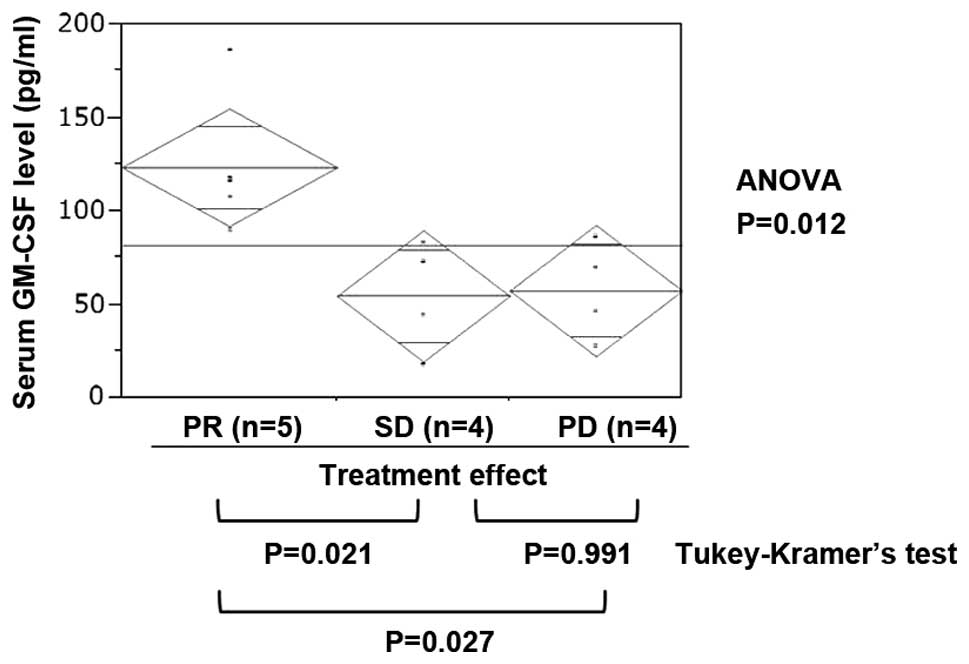Spandidos Publications style
Yamada D, Matsushita H, Azuma T, Nakagawa T, Nagata M, Yamada Y, Suzuki M, Fujimura T, Fukuhara H, Kume H, Kume H, et al: Granulocyte macrophage colony‑stimulating factor as a predictor of the response of metastatic renal cell carcinoma
to tyrosine kinase inhibitor therapy. Mol Clin Oncol 2: 1023-1027, 2014.
APA
Yamada, D., Matsushita, H., Azuma, T., Nakagawa, T., Nagata, M., Yamada, Y. ... Kakimi, K. (2014). Granulocyte macrophage colony‑stimulating factor as a predictor of the response of metastatic renal cell carcinoma
to tyrosine kinase inhibitor therapy. Molecular and Clinical Oncology, 2, 1023-1027. https://doi.org/10.3892/mco.2014.360
MLA
Yamada, D., Matsushita, H., Azuma, T., Nakagawa, T., Nagata, M., Yamada, Y., Suzuki, M., Fujimura, T., Fukuhara, H., Kume, H., Homma, Y., Kakimi, K."Granulocyte macrophage colony‑stimulating factor as a predictor of the response of metastatic renal cell carcinoma
to tyrosine kinase inhibitor therapy". Molecular and Clinical Oncology 2.6 (2014): 1023-1027.
Chicago
Yamada, D., Matsushita, H., Azuma, T., Nakagawa, T., Nagata, M., Yamada, Y., Suzuki, M., Fujimura, T., Fukuhara, H., Kume, H., Homma, Y., Kakimi, K."Granulocyte macrophage colony‑stimulating factor as a predictor of the response of metastatic renal cell carcinoma
to tyrosine kinase inhibitor therapy". Molecular and Clinical Oncology 2, no. 6 (2014): 1023-1027. https://doi.org/10.3892/mco.2014.360















